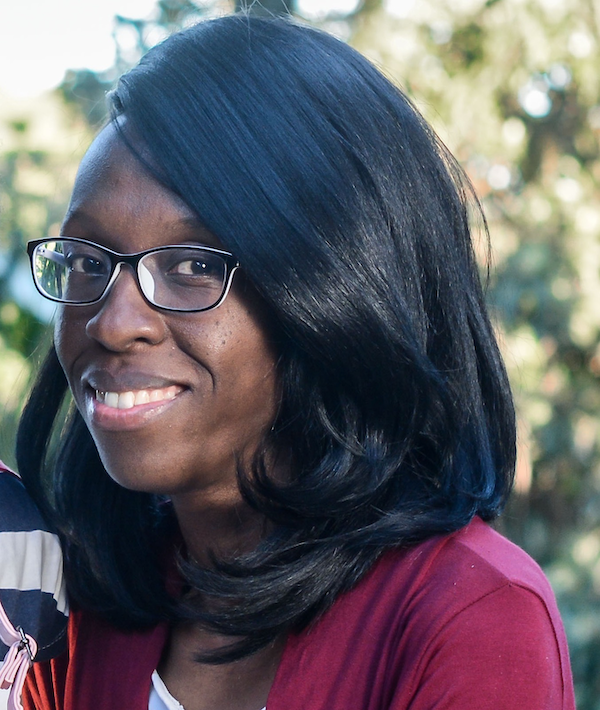If you’re looking at how to start a podcast, step one is figuring out what, precisely, you’re going to talk about. No matter what genre you plan to cover, whether it’s true crime, personal finance, sci-fi novels, cooking at home, or true stories about sci-fi novelists murdering home cooks for money, choosing the topic for your podcast might be the most important creative decision you make.
It’s also harder than it sounds. With more than 2 million podcasts already out there and more appearing every day, you can’t just say “I’m going to make my own podcast about cooking” and expect to get anywhere. You have to be far more specific, find a niche that either nobody’s talking about or where you have something new and fresh to offer.
And once you choose a podcast topic, your work is only just beginning. Choosing a topic leads to a cascade of decisions: What’s your angle on the topic? And what exactly will you talk about in each episode? How will you sustain a voice and tone from week to week, while keeping your listeners engaged? The answers are fundamental to starting a podcast.
To come up with a topic, it's helpful to think about the ‘why’ behind your decision to start a podcast. Read on to learn how to pick a podcast niche. And if you still don’t have a podcast niche idea by the end of this blog post, we’ve got a few suggestions for you.
What is a podcast niche?
A podcast niche refers to a specific topic or area of interest that a podcast focuses on. It's a specialized segment within the broader podcasting market where the content is tailored to meet the needs and interests of a particular audience. For instance, a podcast could be niche if it's about vegan cooking, digital marketing, mindfulness meditation, or indie video games.
Having a niche allows podcasters to target a specific demographic or psychographic segment, making their content more relevant and engaging for their listeners. It also helps to differentiate their podcast from the many others available, giving it a unique identity and appeal.
How to pick a podcast niche
- Consider your goals and interests
- Understand your audience and what they want
- Decide what makes you different
- Choose how you’ll make money
- Look into industry trends
- Consider a co-host
- Verify your niche is evergreen
1. Consider your goals and interests
When choosing a niche for your podcast, you’ll want to work through a series of thought exercises to take your idea from broad to specific — and at the end you should have a compelling concept that will draw listeners, leave them thinking about your podcast for the rest of their day (or life!), and set them on edge awaiting your next episode.
These might be the easiest questions to answer: Why are you starting a podcast? What do you want to share with the world? What kind of impact do you want to have?
A podcast should be rooted in your passion. The ‘why’ is different for everyone, but you should consider things like:
- The topic you simply can't get enough of
- A marketing opportunity for your business or brand
- A community you want to connect and share information or knowledge with
- Starting a dialogue around challenging subjects
Learn: 50+ podcast topic ideas to inspire your own (2023)
2. Understand your audience and what they want
Once you’ve self-reflected, it’s time to think about who you’re making your podcast for. (Hint: not yourself). Think about your audience in several ways: Who are they demographically? What will motivate them to listen to your podcast — i.e., what will they get out of it?
Get ridiculously specific. Rather than “adults 25–40 who like video games”; think “women in their late 20s living on the East Coast who are obsessed with first-person shooters but feel disillusioned by the gaming industry’s ignorance of their female demographic.” The narrower you can get, the better.
3. Decide what makes you different
Next, you’ll want to make sure your podcast is bringing something new to the conversation. Look at what's already out there. Are there podcasts covering the topics you're interested in? How can you differentiate your podcast from these existing ones? What unique spin do you have to offer?
It’s okay if the topic has been covered before — most have — but finding your own voice and your own point of view is key. You can stress-test your podcast topic for uniqueness by listening to the other podcasts in the same category. Make sure your voice feels genuinely original, and that no one has taken the same angle as you.
4. Choose how you’ll make money
Starting a podcast does cost money — you’ll have to invest in some basic podcast equipment and a hosting service — so it’s beneficial to think proactively about how you’ll make money from your podcast. Options include sponsorship, advertising, subscription fees, and donations.
Ask yourself: What kinds of advertisers might want to reach your audience? Or would your audience be willing to pay for your podcast? Be realistic; you’re probably not going to get rich off a successful podcast, but you might make enough to offset the costs.
Here’s how to follow the steps outlined above to execute on an idea that works for you and for your audience. Let’s say you want to start a podcast about parenting. Here are the elements you’ll want to define first:
- Your interests and goals: You want to share what it’s like to be a working parent to young kids. Before children, you used to dabble in standup comedy, so your emotional goal is to give other moms or dads a little morale boost by helping them find the humor in their exhaustion, tedium, and misery.
- Your target audience: Parents of one or more kids under 10 who are trying to make it all work while navigating to the toils of daily stress in work and parenting. And they could use a laugh.
- Your differentiator: You’ve been there, and your brand of humor is raw and self-deprecating, so you can speak critically and frankly about your parenting behavior, with a little bit of levity, and harness that self-reflection into a lesson. So maybe leaving your kids in the room with the cat’s litter box wasn’t the best way to keep them busy during a work call on a rainy Thursday.
- Your monetization plan: Advertisers with products that help parents survive and thrive will be a perfect fit — think clothing subscription packages, meal delivery services, and wine brands. Also consider the parenting products you use and value. Brands love (and will pay for) on-air testimonials from podcast hosts.
5. Look into industry trends
What’s going on in your industry? What’s popped up in the world that everyone is looking to learn more about? Consider whether any of these trending topics could help shape a new podcast niche.
Aim to focus on topics that are interesting all year round. Sure, you could produce a show that covers building a marketing strategy that targets Christmas shoppers, but you’ll struggle to keep podcast listeners outside of the lead up to this event. A seasonal podcast can be successful but success is dependent on the podcast format and the way it’s marketed.
For example, if your podcast niche is fan-fiction based off of a popular TV show or movie franchise, are you prepared to keep writing or ideating if the show is canceled?
Use tools like Google Trends, Keyword Planner, or social media platforms to gauge the popularity of potential topics. This can help you understand what people are interested in and searching for.
6. Consider a co-host
Choose a niche where you can give listeners something unique and valuable. Your knowledge and personal experience in a particular field can set your podcast apart.
If you’re an entrepreneur, a podcast on the topic of entrepreneurship or running a small business would be a good fit based on personal experience. But if you want to, consider adding a co-host or bringing guests on to go deep into topics where you lack the knowledge.
7. Verify your niche is evergreen
Is your niche topic something you can talk about for a long time? You want to ensure there's enough content to produce new podcast episodes and keep the show going.
Do you think a deep dive podcast into Tiger King would do well in 2023? Probably not. Some topics fall out of trend just as fast as they come in. While it’s impossible to pick the perfect podcast niche that’ll be relevant for years to come, it’s important to be aware of fads and trends. Ultimately a timeless or evergreen topic is what will keep your podcast listeners for the long haul.
 |
10 best podcast niche ideas to spark your creativity
If you really want to start a podcast and you really can’t come with anything to say, here are 10 ideas to get you started.
1. Silly true-crime stories
Everyone loves stories about criminal masterminds, but what about crimes so seemingly dumb you can’t believe they’re real?
Well-publicized murders or crimes involving famous folk are stirring, for sure, but these are stories potential listeners won’t hear anywhere else. Your initial description of the crime could be funny, focusing on how inexplicable it seems; then you could provide some empathetic background on why the person did it, and leave a listener feeling like they learned something about our society.
2. A worst-date tell-all
In some form, we’ve all had bad dates. You just have to create a space to commiserate about them.
So many podcasts are about the podcast host’s point of view exclusively; this one, however, is all about the audience. You’ll invite your friends and listeners to come on and share their most hilarious, embarrassing, and disturbing dating stories.
It’ll be funny, but you should push to also make it helpful: what can a bad date teach us about what we're looking for out there? If nothing else it’ll help ensure that everyone feels less alone in facing the horrors of the dating world.
3. Celebrities
This pop-culture podcast features stories about people who go to great, outrageous lengths to meet their favorite celebrities. It's weird and funny, but also an exploration of how we get sucked into celebrity culture.
Rather than tracking celebrities like a supermarket tabloid, this show will focus on the people whose celebrity obsessions cause them to lose touch with the norms of everyday life. Lots of perfectly normal people have stories, which is a good indicator that they're podcast material.
(Note: You should probably at least nominally respect the privacy of public figures and don’t include any personal or sensitive information, even if listeners submit it. Otherwise, make fun of them all you want.)
4. A day in the life of various careers
Everyone knows what a software developer does. But what do they actually do all day? You break it down, from the first task of the work day to the closing whistle — and give your listeners a deep and realistic understanding of what different jobs are really like.
This podcast isn’t about career paths and workplace culture; it’s immersive and honest, allowing listeners a view into lives they aren’t living. Whether you’re the narrator or simply a bystander as the featured guest goes about their day, this will allow your audience to dive right into a world with which they aren’t yet familiar, and maybe consider if it’s the right world for them.
5. Parenting special-needs children
All parents need support, and parents of children with special needs are no exception.
Combining real-life, relatable stories and expert guests, this podcast is all about making your audience feel supported, included, and more knowledgeable after each episode. They’ll most definitely thank you for it.
6. Vintage car crusaders
You’ll track down the coolest, rarest, and most awe-inspiring vintage cars and interview the owners about how they acquired them, what drew them to the cars, and what they’re going to do with them.
There are plenty of podcasts for people who love cars, but this one will focus on the stories of the owners: How they fell in love with vintage cars, and how they managed to acquire their most prized rides. Bonus points for directing people to your social media channels with images of the cars — and getting your subjects to share your podcast on their channels as well!
7. Everyday jerks
We all encounter them: rude, inconsiderate, selfish people. You’ll collect stories of interactions with these people — then track down the jerks themselves to find out what they’re really like, get their perspective on what happened, and find out what else happened to them that day.
Everybody wants to celebrate everyday heroes — but what about celebrating the people who had a bad moment? Who acted out of character, or whose life experiences have made them react in off-putting ways? It won’t be easy — you’ll have to do some serious sweet-talking to get them to share — but that’s why nobody else is doing it.
8. Getting to good taste
Part of the reason cooking is hard for most of us is because when someone asks "how does that taste" the only things we can say are "good" or "bad." How do you develop your palate so you can say things like "I love the earthiness but it needs some acid for balance"?
Taste isn't easy to teach. How do you describe how something tastes in a way others can understand? No idea, but if you can crack it, you'll have a great podcast.
9. Weirdo hobbyists and their weirdo hobbies
Some people’s passions seem very strange. And in fact, they are. But that doesn’t mean there’s not something compelling about their passion for that very strange thing. Maybe the person who collects Pontiac owners manuals is honoring a grandparent who wrote Pontiac owners manuals.
Each episode will seek the humor in unusual pursuits, but never at the hobbyist’s expense. Instead, you'll treat them with real curiosity and empathy, asking why they choose their bizarre-seeming hobby and letting them tell their story without judgment. Your listeners get a window into the lives of people with the guts to follow their passion to places others wouldn’t go.
10. Follow the fear
You tell stories about people who accept a challenge to try the thing that scares them the most. A vertigo sufferer goes rock-climbing, someone terrified of dogs spends a day at the animal shelter, and so on.
Everyone wishes they could conquer their fears. Telling stories about people who did that, in spectacular or just colorful ways, will leave listeners with valuable lessons on how to confront the things that hold them back in life. And it can be really funny.
Learn: 25 Tips for a Chart-Topping Podcast Series
Podcast niches FAQ
What is a good niche for a podcast?
A good niche for a podcast is one that aligns with your passion and expertise, has a dedicated audience, and is not overly saturated. It should be a topic you can discuss at length and provide unique insights on.
What are the most popular topics for podcasts?
The most popular podcast topics typically include true crime, health and wellness, business, comedy, politics, and technology. However, the best topic for any podcast depends on the interests of its target audience.
Does a podcast need a niche?
Yes, a podcast needs a niche to stand out in a crowded market. Having a specific focus helps attract a dedicated audience, provides direction for content creation, and can make it easier to monetize the podcast.
How do I get 1000 listeners for my podcast?
To get 1000 listeners for your podcast, consistently produce high-quality content, promote your podcast on social media and other platforms, engage with your audience, and consider collaborations with other podcasters or influencers in your niche.







































